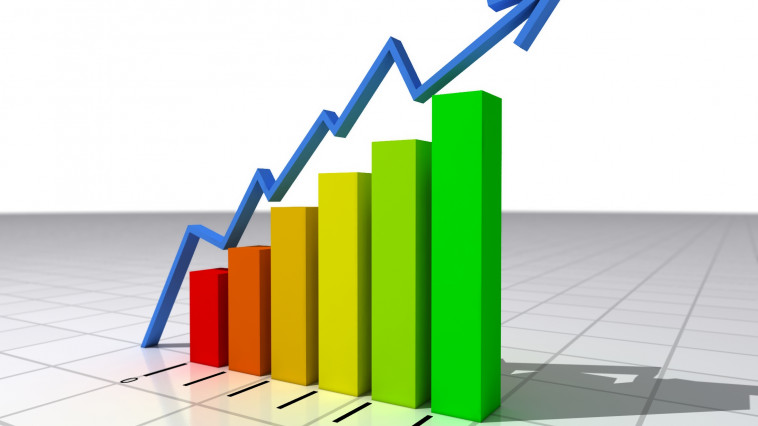News from BNS: GDP increased

Gross domestic product growth (GDP) for the third quarter, announced yesterday by the National Bureau of Statistics (BNS) is largely due to agriculture. BNS mentions this and the same say experts in the field.
National Bureau of Statistics informs that, in the third quarter of 2016 the Gross domestic product on gross series totaled 39749 mil. lei current market prices, increasing - in real terms - by 6,3% compared to quarter III of 2015. On the series seasonally adjusted, Gross domestic product increased by 7,3% compared to third quarter of 2015 and by 3,0% compared to the second quarter of 2016.
According to the BNS, the GDP growth, was mostly influenced by agriculture, forestry and fishing (+ 4.9%) and with a share of 20.6% to the GDP creation. Wholesale and retail trade, maintenance and repair of vehicles and motorcycles (+ 0.8%), with a share of 11.9% to the GDP. Mining and manufacturing, transport and storage, information and communication (by + 0.2%), with a share of 11.7% to the GDP; 4.8% and 5.1%. The volume of taxes on products increased by 3.1% compared to the same period of the previous year, contributing to growth and GDP by 0.4%.
Construction, public administration and defense, compulsory social security, education, health and social care had a negative impact on GDP.
Contacted by Deschide.MD the expert in economics, Sergiu Gaibu said that the numbers displayed by BNS might be real because it is natural an economic growth to be recorded in the third quarter in comparison with the second quarter. This is due to agricultural exports. However, the increase compared to 2015 is because last year was recorded a drought, while 2016 was a productive year.
"So compared to the second quarter the growth is natural. This happens all the time. Compared to the third quarter of 2015 an explanation is namely that previous year was a drought and this year is a better harvest. However, the agricultural sector depends on agricultural production which was better, so it registered growth," said Gaibu.
The expert said that the activities of Free Economic Zones have increased their production capacities but these are insignificant if we consider the GDP growth that BNS announced.
"We can see a production growth in the Free Economic Zones and we mention big enterprises here. Also, in 2017 their effect will be felt. This can be appreciated, but is not due to the economy. Yes, indeed the Government established certain conditions for these companies, but they are foreign investments. So we can conclude that increased production in large enterprises has been a propelling economic growth, but the main difference is felt on agricultural plan," the expert added.














